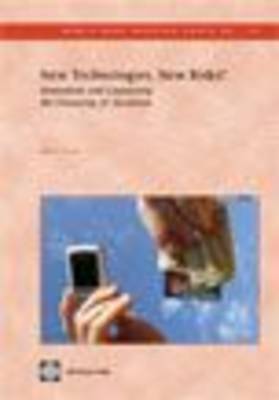World Bank Working Paper
3 total works
New financial and communication technologies offer a great opportunity to improve the lives of people everywhere. For instance, millions of impoverished people now have access to the financial system through stored value cards or mobile phones. However, some are concerned that governments are not always aware of these innovations in their jurisdictions. This has prompted fear that fast-moving terrorist groups could expand funding undetected. The fear has led some countries to take a restrictive stance on the technologies' use, either by outright prohibition or by placing unnecessary limitations that deter market development. Authorities are therefore challenged to tackle the double-sided nature of technological advancement: promoting security and economic growth. 'New Technologies, New Risks? Innovation and Countering the Financing of Terrorism' explores how money flows via these mediums, risks they pose, and how governments have mitigated the risks.
Integrity in Mobile Phone Financial Services
by Pierre-Laurent Chatain, Raul Herndez-Coss, Kamil Borowik, and Andrew Zerzan
Published 19 September 2008
Governments are challenged to make an innovation-friendly climate while simultaneously ensuring that business development remain sustainable. Criminal use of the technology--terrorist financing and money laundering--challenges long-run business viability via risk of massive investment flight and public distrust of new players entering the market. Sustainable business models are those that base regulation on a careful risk-based analysis. This study identifies the perceived risks and compares them with the actual level of risk for each category of mobile phone financial services. The comparison reveals that the perceptions do not weigh up to the reality. Based on fieldwork in seven locations where the technology has taken off, this paper finds that providers apply measures that are consistent with international standards to combat money laundering and terrorist financing. It identifies the sometimes non-traditional means the industry uses that both mitigate the risks and are in line with good business practices. Acknowledging that mobile phone financial services are no riskier than other channels, governments are called to treat them as an opportunity to expand access to finance.

